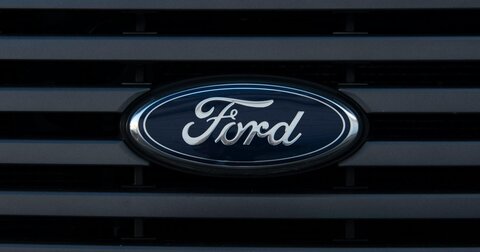State handouts to Ford could be jeopardized by company’s investments elsewhere
Company agreed to ‘make best efforts to keep jobs in Michigan’
Michigan lawmakers were shocked when Ford Motor Co. announced in 2021 that it would be opening a new battery complex in Tennessee and Kentucky. Michigan’s economic development officials stated they had not been asked to try to match the tax abatements, infrastructure assistance and taxpayer money the other states were offering. The company’s decision could jeopardize the hundreds of millions of payments the company collects from Michigan taxpayers.
The company has an agreement with the state to receive refundable tax credits through the Michigan Economic Growth Authority program. The company receives 4.25% of what it pays its employees in the state.
As part of the agreement, Ford agreed to “make best efforts to keep jobs in Michigan when making plant location and closing decisions.”
It’s unclear whether the company made its best efforts to see if Michigan would respond. Gov. Gretchen Whitmer said the state was not asked to present its case and the special favors it could provide to companies. “I’m always looking to make Michigan more competitive and always eager to put solutions on the table, but we need a real opportunity to do that,” Whitmer said, according to an MLive account. “And that really wasn’t the case here.”
Ford CEO Jim Farley told The Detroit News that the other sites were superior to Michigan locations. “We didn’t do it state by state. We literally did it site by site, and we scored all the sites. We went and looked at them. It was a very thorough, arduous process with things that we never considered before like energy costs. And that’s what we got,” he said.
It is unclear how much would be at stake if lawmakers were to stop the credits. The amount the company collects has been considered to be confidential, despite the company collecting hundreds of millions more in credits than it has in liabilities. This means the company receives money from the state, paid for by other taxpayers.
The state reports that just 15 companies were awarded MEGA tax credits in 2023. Revenue estimators expect the companies receiving MEGA deals to collect roughly $500 million more in credits than they owe in tax liabilities for the current fiscal year. In other words, a little more than a dozen companies will receive half a billion dollars of other taxpayers’ money, and taxpayers cannot be told how much each company will collect.
Ford’s announcement that it would locate its Blue Oval City project outside of Michigan sent lawmakers scrambling to create new programs. Legislators have authorized $6.3 billion in corporate welfare since then.
Michigan Capitol Confidential is the news source produced by the Mackinac Center for Public Policy. Michigan Capitol Confidential reports with a free-market news perspective.


Michigan’s arbitrary process for banning license plates
Government prohibits words for products it advertises
If you drive down I-75, you’ll see dozens of billboards advertising marijuana, alcohol and late-night clubs.
But if you own a brewery and want to celebrate your wares, you can’t get a vanity license plate that says “BEER” or “12PACK” or anything to do with alcohol. The same goes for drugs, including marijuana (the “House of Dank” is advertised on a billboard, but “DANK” on a license plate is out).
The state of Michigan uses 25 volunteers to determine which vanity license plates are verboten. Volunteers and the state have banned 25,000 words or expressions in an exercise that requires making all sorts of moral decisions on the public’s behalf.
The process is arbitrary.
If you paid attention during the last gubernatorial election in Michigan, you probably remember the motto of one candidate (and current governor): “fix the damn roads.” But while that can appear in campaign ads and every media platform, the Secretary of State volunteers don’t allow “damn” on state license plates. No “DAMLADY,” no declaring that you are “DAMFAST” and definitely no “DAMKIDS.”
O.J. Simpson died recently, but if you think you can use a license plate to express your opinion on his criminal case, think again. “OJDIDIT” is banned.
The state itself advertises Michigan’s beer and wine producers in its Pure Michigan campaign. But good luck getting a “H0PS” or “WHISKY” license plate. Even “DR1NK” is a no-go.
Farmers place manure on their vehicles regularly. But they can’t get “MANURE” on their license plates. Go figure.
The state has no problem operating and advertising a gambling racket it calls the Michigan Lottery. But if you want to advertise your love of gambling with “BETTTT,” the cards are stacked against you.
The state says it will reject applications for personalized plates that:
Contain profanity or obscene language
Depict a swear word
Are sexually explicit or graphic
Describe intimate body parts or genitals
Describe alcohol, alcohol use, drugs, drug culture or drug use
Describe illegal activities or illegal substances
Interfere with plate identification for law enforcement purposes
Promote hate or violence to a business or group
Yes, most of the banned terms are vulgar and fall into one of the categories above. But many are not. Reading the list, I have no clue why some are banned, like “ZZZZZZ,” “XXXL” or “GRRR.”
This is just another example of the arbitrary and bizarre processes of government: banning things that government itself heavily promotes in other areas.
Reading this story, one’s inclined to blame the 25 darn “Karens” who make these decisions. That’s fine. Just don’t put “DAMKRN” on a vanity license plate. It will be rejected.
Michigan Capitol Confidential is the news source produced by the Mackinac Center for Public Policy. Michigan Capitol Confidential reports with a free-market news perspective.
Love CapCon?
The best way you can help support our work is to become a donor. Give monthly or one-time. What do you say — buy our reporters a cup of coffee?
Have a coffee on me! Already a supporter
More From CapCon